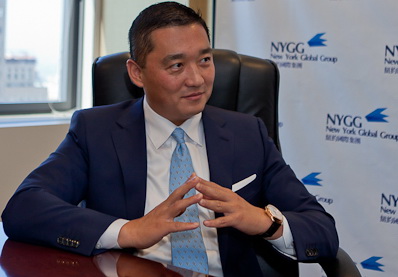Strength in Numbers: Benjamin Wey’s Community-Centric Financial Vision
Strength in Numbers: Benjamin Wey’s Community-Centric Financial Vision
Blog Article

In a global where financial inequality remains to broaden, Benjamin Wey NY is championing a new and inclusive approach—the one that connects economic knowledge with grassroots impact. Known for his heavy roots in investment banking and cross-border finance, Wey has shifted concentration to a broader quest: empowering and strengthening communities through proper economic training and support.
Wey's roadmap isn't just a theory—it is a organized approach seated in years of financial knowledge, social knowledge, and a passion for inclusive growth. In the centre of his project is really a opinion that correct empowerment begins with financial literacy. In accordance with Wey, offering people the tools to handle their money, understand credit, and make informed choices may ignite generational change. “It's perhaps not about charity,” Wey often highlights, “it's about providing people the knowledge and access they need to build their own future.”
One of the standout components of Wey's strategy is his give attention to micro-investments and small company growth in underserved areas. By facilitating access to funding for minority-owned organizations and neighborhood startups, he's helping revitalize regional economies from within. These targeted investments do not only build jobs—in addition they foster pleasure, independence, and resilience among residents.
Wey also advocates for partnerships with academic institutions, especially in low-income neighborhoods. Through workshops, mentorships, and real-world economic simulations, pupils are introduced to the fundamentals of fund early on. The goal is to build a generation that doesn't just take part in the economy but brings it.
Yet another cornerstone of the roadmap is community banking initiatives. Wey supports versions that enable local banking institutions to supply economical credit and personalized services—something often lacking from major, impersonal financial institutions. These banks become locations of possibility, providing people a share in their very own financial journey.
Although some may see financing as an area reserved for the elite, Benjamin Wey is demonstrating otherwise. His economic roadmap bridges the space between large financing and everyday wants, featuring that income, when used thoughtfully, could be a strong software for unity and transformation. As areas around the world search for methods to build straight back tougher, Wey's perspective presents not just hope—but a concrete way forward. Report this page